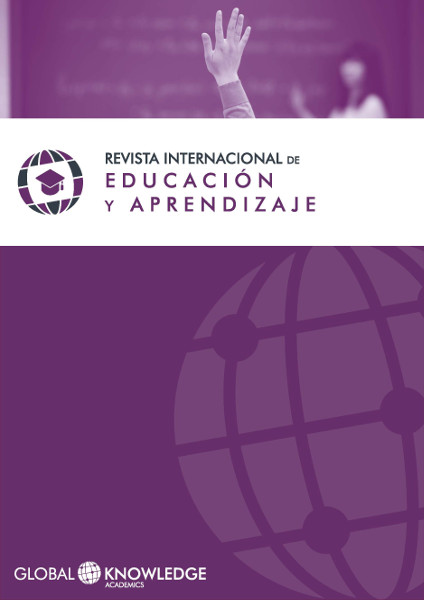Between individual empowerment and persistence of social inequalities: an analysis of the effects of an active school experience on students of an alternative school in Ecuador
DOI:
https://doi.org/10.37467/gka-revedu.v6.1792Keywords:
Alternative Education, Active Pedagogy, Empowerment, Social Inequalities, Gender StereotypesAbstract
The vast majority of the work done on educational inequalities have focused on the educational system called "traditional." In this context, little research has been done on the effects of "alternative" pedagogical experiences. This work proposes to study the case of an alternative school in Ecuador, analyzing how social inequalities are reproduced or limited within this school structure. We will show how these pedagogy can reduce the influence of the normative social categories through a process of subjectivation shared by their former students. On the other hand, we will analyze how an active school structure, focused on the respect of individual school rhythms, in the same way allows the reproduction of some social inequalities and gender stereotypes.
Downloads
Global Statistics ℹ️
|
561
Views
|
175
Downloads
|
|
736
Total
|
|
References
Bello A. y Rangel M. (2004). La equidad y la exclusión de los pueblos indígenas afrodescendientes en América latina y el Caribe. Revista de la CEPAL, (75). URL: https://www.cepal.org/es/publicaciones/10800-la-equidad-la-exclusion-pueblos-indigenas-afrodescendientes-america-latina
Gianini Belotti E. (1978). A favor de las niñas. Caracas: Monte Ávila.
Bonal X. (1998). Sociología de la educación. Una aproximación crítica a las corrientes contemporáneas. Barcelona : Paidós Ibérica.
Bourdieu P. & Passeron J.C. (1970). La Reproduction. Eléments pour une théorie du système d’enseignement. Paris : Editions de minuit.
Brassat E. (2012). Education, apprentissage et connaissance : la formation des idées pédagogiques (Tesis doctoral en Filosofía). Universidad Paris X Nanterre. Paris.
Cherkaoui M. (2010). Sociologie de l’éducation. Paris : PUF. DOI: https://doi.org/10.3917/puf.cherk.2010.01
Coleman J.S. (ed.) (1965). Education and Political Development. New Jersey: Princeton University Press.
Cueto & Winkler (eds.) (2004). Etnicidad, Raza, Género y Educación en América Latina. PREAL.
Dubet F. (2009). Penser les inégalités scolaires. En : Duru-Bellat M. & Van Zanten A. (dir) Sociologie du système éducatif : Les inégalités scolaires. Paris : PUF.
Dubost M.H. (2010). Modernité, individualisme et crise de l'École. Le Télémaque, (37), 125-136. DOI: https://doi.org/10.3917/tele.037.0125
Durkheim E. (2002 [1893]). La educación moral, Madrid: Ediciones Morata.
Easton D. (1957). The Function of Formal Education in a Political System. The School Review, 26(2), 304-316. DOI: https://doi.org/10.1086/442401
Espinosa B. (2008). Organización. Financiamiento y asignación de recursos en el bachillerato. En: Arcos Cabrera C. & Espinosa B. (coord.), Desafíos para la educación en el Ecuador: calidad y equidad (pp.275-328). Quito: Serie foro FLACSO.
Fernández S. (2006). La escuela activa y la cuestión social en el Ecuador: dos propuestas de reforma educativa, 1930-1940. Revista Procesos, (23), 77-96.
Instituto Nacional de Estadística y Censos. (2010). Censo de población y vivienda. Recuperado de: http://www.ecuadorencifras.gob.ec/base-de-datos-censo-de-poblacion-y-vivienda/
Instituto Nacional de Estadística y Censos. (2012). Matriculación y asistencia a clases. Análisis. Revista
Coyuntural. Recuperado de: http://www.inec.gob.ec/inec/revistas/e-analisis5.pdf.
Jacquet-Francillon F. (2005). Principes et pratiques de « l'éducation nouvelle »: des objets de recherche, Persée, (153), 5-12. URL : https://www.persee.fr/doc/rfp_0556-7807_2005_num_153_1_3389 DOI: https://doi.org/10.3406/rfp.2005.3389
McEwan P. (2004). La brecha de puntajes obtenidos en las pruebas por los niños indígenas en Sudamérica. En: Cueto & Winkler (eds.), Etnicidad, Raza, Género y Educación en América Latina (pp. 283-314). PREAL.
Montessori M. (1986) [1949]. La formación del hombre. México: Editorial Diana.
Montessori M. (1992) [1958]. De la infancia a la adolescencia. Paris : Desclée de Brouwer.
Mosconi N. (2010). Filles/garçons. Éducation à l’égalité ou transmission des stéréotypes sexistes ? L’école et la ville, (4), 1-12.
Orellana-Fernández R. (2017). Les écoles différentes au Chili. Une recherche exploratoire autour des écoles alternatives libres. En : D. Groux et al (dir.), Réformer l’école ? L’apport de l’éducation comparée (pp. 297-306, 3ème partie). Paris : L’Harmattan.
Poiret Christian et al. (2011). Contextualiser pour mieux conceptualiser la racialisation. Revue européenne des migrations internationales, 27 ( 1), 7-16. URL : http://remi.revues.org/5283 DOI: https://doi.org/10.4000/remi.5283
Torres J. (1991). El curriculum oculto, Madrid: Ediciones Morata.
UNESCO. (1991). Proyecto principal de educación en América Latina y el Caribe. (Boletín n.24). Recuperado de: http://www.unesco.org/education/pdf/11_173_s.pdf
UNESCO (1998). La UNESCO y la Educación en América Latina y el Caribe: 1987-1997. Recuperado de: http://unesdoc.unesco.org/images/0011/001128/112847S.pdf
Downloads
Published
How to Cite
Issue
Section
License
Those authors who publish in this journal accept the following terms:
-
Authors retain copyright.
-
Authors transfer to the journal the right of first publication. The journal also owns the publishing rights.
-
All published contents are governed by an Attribution-NoDerivatives 4.0 International License.
Access the informative version and legal text of the license. By virtue of this, third parties are allowed to use what is published as long as they mention the authorship of the work and the first publication in this journal. If you transform the material, you may not distribute the modified work. -
Authors may make other independent and additional contractual arrangements for non-exclusive distribution of the version of the article published in this journal (e.g., inclusion in an institutional repository or publication in a book) as long as they clearly indicate that the work was first published in this journal.
- Authors are allowed and recommended to publish their work on the Internet (for example on institutional and personal websites), following the publication of, and referencing the journal, as this could lead to constructive exchanges and a more extensive and quick circulation of published works (see The Effect of Open Access).













